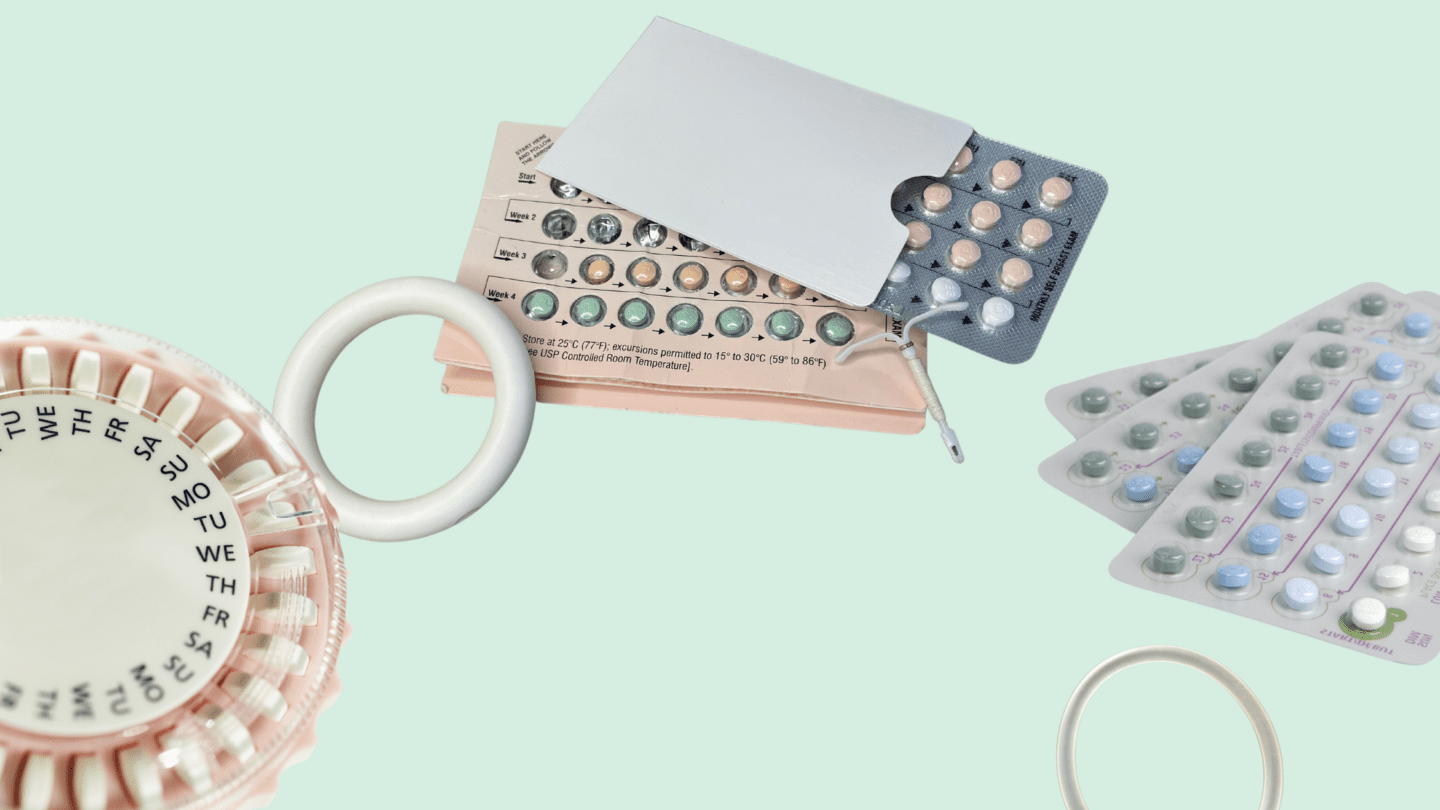Do antibiotics affect ?
Antibiotics and are two widely used types of medicines. There have been numerous rumors of antibiotics affecting how well works. But what does the current science really say? Do you need a backup option when taking antibiotics?
Antibiotics are used to treat some bacterial infections. includes any medicine taken in order to prevent pregnancies – including hormonal or non-hormonal methods. Due to their frequent usage, there’s a good chance if you are on , you might end up needing a course of antibiotics concurrently at some point. If that happens, should you be concerned about the antibiotic altering the efficacy of your ? Let’s look at the research.
What are antibiotics and why are they prescribed?
Antibiotics (sometimes abbreviated, abx) are used to treat certain bacterial infections. They are not useful for viral infections or other types of diseases. There are hundreds of different antibiotics and some are more effective for particular infections (aka specific bacteria) or minimizing side effects.1-2 Depending on the infection, the severity of disease can vary widely, but antibiotics can also be a very effective cure.3
Today, the common uses for antibiotics in developed countries include strep throat, urinary tract infections and skin infections.3,4 Antibiotics are usually taken for a short period of time. Concerns with antibiotic resistance are why you should only take antibiotics if your doctor prescribes them and exactly as directed.5,6
How do antibiotic treatments affect my body?
A typical length of treatment with antibiotics varies depending on the bacteria and type of infection being treated, but is somewhere in the 5-14 days range.7,8 Common ways that antibiotics are given are through an IV (in a hospital) or as a pill (often at home).9
The drug works throughout your body to kill the bacteria that make you sick. Antibiotics are often metabolized and excreted quickly (within a day or so, depending on the drug and route of dosing and other factors like when you ate last).9 This is why you often take a dose at set times each day during the treatment.
Since drug side effects are a frequent topic of conversation here at adyn, it is worth mentioning that antibiotics can have side effects. The most common are related to your gastrointestinal tract, like nausea, vomiting and diarrhea10 (Side note: Your gut is also where your “gut microbiome” lives — the healthy bacteria that always live with us and even help with things like digestion, immunity and mental health).11-12
Does being on affect these side effects? Unfortunately, we don’t have the answer. This is yet another example of the lack of research related to female biology.
Is adyn right for you? Take the quiz.
What sorts of could interact with antibiotics?
Because they work throughout your whole body (“systemically”), antibiotics have the potential to interact or affect other drugs that are also working systemically – such as .
At adyn, we understand how many options there are to choose from. Are any of them less susceptible to interactions with antibiotics? Yet again, we have an unanswered question. A vast majority of the research done on antibiotics and has focused on combined oral contraceptives, and so data is substantially lacking regarding other options like the patch, ring, and IUDs.
Non-hormonal or barrier methods of will not be affected by antibiotics
Non-hormonal or barrier methods of will not be affected by antibiotics because they work “locally” rather than “systemically” on your hormones.
So, do antibiotics interfere with efficacy?
Drum roll, please…Science says: no, mostly.
This finding is particularly interesting given that 80-90% of 200 surveyed physicians and pharmacists in the eastern US in 2007 believed that antibiotics affect hormonal efficacy.13 As a result, 90% of them recommend their patients who are on combined oral use a backup method when on antibiotics.13
The known exception: Rifampicin (also called rifampin) is an antibiotic that has been shown to lower levels of contraceptive hormones in the blood and therefore could make less effective.14 It is mostly used for tuberculosis.
Other combinations of antibiotics and hormonal contraceptives that have been studied do not show interactions that would be suspected of decreasing efficacy.15-17 One study looked at the interactions of the NuvaRing and two specific antibiotics, and it found there was no difference of patient’s levels whether they took the antibiotics or not.18
Like what you’re reading? Get the latest straight to your inbox 💌
There have been clinical examples of unintended pregnancies occurring when a patient is concurrently taking and antibiotics. However, the frequency of these occurrences is incredibly low (similar to the rate of expected failure of highly effective ), were largely based on patient recall, and were not from clinical trial settings evaluating the interaction of antibiotics and .15
However, interactions between many s and antibiotics have not been tested.
Whether they point to the lack of research, or the (mostly incorrect) rumors about antibiotics affecting , or the life-changing results of an unexpected pregnancy, some providers clearly suggest using a backup, non-hormonal method while on antibiotics. Regardless, it is definitely a topic worth discussing if you find yourself in this situation.
Other drugs can decrease efficacy
There are some drugs that do influence (decrease) efficacy. The only known one that is available over the counter is St. John’s Wort. The others are all available by prescription only – so be sure to always tell your provider all of the medications you are taking.19
What do we still need to research?
Lots.
Gender inequities are evident across society, but the medical research gap underlies the name of this blog and the decisions that drive adyn. This post highlights yet another topic of “women’s health” that touches so many lives, but is severely understudied.
Specific questions that we hope are answered in future research include:
– Are hormonal birth controls that are not combined oral contraceptives affected by antibiotics?
– Are the same active ingredients delivered through different administrations (patch, ring, IUD, implant) similarly affected (or not affected) by antibiotics?
– How do antibiotics affect the menstrual cycle?
– Is there an increased rate of unexpected pregnancies conceived when on hormonal birth controls and taking antibiotics? (Albeit, this is a tough one to do in a clinical trial setting.)
Until these questions are researched more thoroughly, be sure to tell your doctor all of the medications you are taking and talk with them about any drug interaction concerns you have.
If you aren’t sure of the best for you – adyn is here to help.
-
- Lynch TJ. Choosing optimal antimicrobial therapies. Med Clin North Am. 2012 Nov;96(6):1079-94. doi: 10.1016/j.mcna.2012.08.006. Epub 2012 Sep 27. PMID: 23102478.
- Leibovici L, Shraga I, Andreassen S. How do you choose antibiotic treatment?. BMJ. 1999;318(7198):1614-1616. doi:10.1136/bmj.318.7198.1614
- Antibiotic Use. Centers for Disease Control. https://www.cdc.gov/antibiotic-use/q-a.html. Accessed 02/2022.
- Golan Y. Current Treatment Options for Acute Skin and Skin-structure Infections. Clin Infect Dis. 2019;68(Suppl 3):S206-S212. doi:10.1093/cid/ciz004
- Antibiotic Do’s and Don’ts. Centers for Disease Control. https://www.cdc.gov/antibiotic-use/do-and-dont.html. Accessed 02/2022.
- Onufrak NJ, Forrest A, Gonzalez D. Pharmacokinetic and Pharmacodynamic Principles of Anti-infective Dosing. Clin Ther. 2016;38(9):1930-1947. doi:10.1016/j.clinthera.2016.06.015
- Yahav D, Franceschini E, Koppel F, Turjeman A, Babich T, Bitterman R, Neuberger A, Ghanem-Zoubi N, Santoro A, Eliakim-Raz N, Pertzov B, Steinmetz T, Stern A, Dickstein Y, Maroun E, Zayyad H, Bishara J, Alon D, Edel Y, Goldberg E, Venturelli C, Mussini C, Leibovici L, Paul M; Bacteremia Duration Study Group. Seven Versus 14 Days of Antibiotic Therapy for Uncomplicated Gram-negative Bacteremia: A Noninferiority Randomized Controlled Trial. Clin Infect Dis. 2019 Sep 13;69(7):1091-1098. doi: 10.1093/cid/ciy1054. PMID: 30535100.
- Lee RA, Centor RM, Humphrey LL, Jokela JA, Andrews R, Qaseem A; Scientific Medical Policy Committee of the American College of Physicians, Akl EA, Bledsoe TA, Forciea MA, Haeme R, Kansagara DL, Marcucci M, Miller MC, Obley AJ. Appropriate Use of Short-Course Antibiotics in Common Infections: Best Practice Advice From the American College of Physicians. Ann Intern Med. 2021 Jun;174(6):822-827. doi: 10.7326/M20-7355. Epub 2021 Apr 6. PMID: 33819054.
- Levison ME, Levison JH. Pharmacokinetics and pharmacodynamics of antibacterial agents. Infect Dis Clin North Am. 2009;23(4):791-vii. doi:10.1016/j.idc.2009.06.008
- Antibiotics, Side Effects. National Health Service, United Kingdom. https://www.nhs.uk/conditions/antibiotics/side-effects/ . Accessed 02/2022.
- Hair, M and Sharpe, J. Fast Facts about The Human Microbiome. University of Washington, Center for Ecogenetics and Environmental Health. 01/2014. https://depts.washington.edu/ceeh/downloads/FF_Microbiome.pdf. Accessed 02/2022.
- The gut microbiome. Nature Outlook. 29 January 2020. https://www.nature.com/articles/d41586-020-00203-4. Accessed 02/2022.
- Masters KP, Carr BM. Survey of pharmacists and physicians on drug interactions between combined oral contraceptives and broad-spectrum antibiotics. Pharm Pract (Granada). 2009 Jul;7(3):139-44. doi: 10.4321/s1886-36552009000300002. Epub 2009 Mar 15. PMID: 25143790; PMCID: PMC4139044.
- Simmons KB, Haddad LB, Nanda K, Curtis KM. Drug interactions between rifamycin antibiotics and hormonal contraception: a systematic review. BJOG. 2018 Jun;125(7):804-811. doi: 10.1111/1471-0528.15027. Epub 2017 Dec 15. PMID: 29130574.
- Dickinson BD, Altman RD, Nielsen NH, Sterling ML; Council on Scientific Affairs, American Medical Association. Drug interactions between oral contraceptives and antibiotics. Obstet Gynecol. 2001 Nov;98(5 Pt 1):853-60. doi: 10.1016/s0029-7844(01)01532-0. PMID: 11704183.
- Pentikis HS, Adetoro N, Braun CJ. Lack of a Pharmacokinetic Interaction Between SYM-1219 Granules Containing 2 Grams of Secnidazole and a Combined Oral Contraceptive in a Phase 1, Randomized, Open-Label Study in Healthy Female Volunteers. Adv Ther. 2017 Jan;33(12):2229-2241. doi: 10.1007/s12325-016-0411-9. Epub 2016 Oct 15. PMID: 27744624.
- Simmons KB, Haddad LB, Nanda K, Curtis KM. Drug interactions between non-rifamycin antibiotics and hormonal contraception: a systematic review. Am J Obstet Gynecol. 2018 Jan;218(1):88-97.e14. doi: 10.1016/j.ajog.2017.07.003. Epub 2017 Jul 8. PMID: 28694152.
- Dogterom P, van den Heuvel MW, Thomsen T. Absence of pharmacokinetic interactions of the combined contraceptive vaginal ring NuvaRing with oral amoxicillin or doxycycline in two randomised trials. Clin Pharmacokinet. 2005;44(4):429-38. doi: 10.2165/00003088-200544040-00007. PMID: 15828855.
- Will medication make my birth control pills ineffective? 21 April 2020. https://www.plannedparenthood.org/learn/teens/ask-experts/will-medication-make-my-birth-control-pills-ineffective. Accessed 02/2022.








